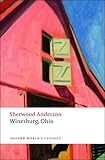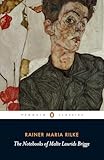 The fear that the human race might not survive has been replaced by the fear that it will endure.
The fear that the human race might not survive has been replaced by the fear that it will endure.
Joseph Skizzen, the main character of William Gass’s masterful new novel, constantly reconsiders and rewrites the above sentence, sometimes with slight modifications; other times, the sentence balloons to more than a page, but its despairing tone never changes. Gass would certainly sympathize with Joseph’s compulsion for revision. “Something gets on paper,” says Gass about his methods, “and then it gets revised, and then it gets revised, and then it gets revised.” Due in part to his obsessive rewriting process, Middle C took the author nearly 20 years to finish, and The Tunnel — a tome that has baffled critics and sustained a cult readership since its publication in 1995 — took Gass nearly three decades to complete.
Middle C begins in Austria, where Joseph’s father decides on a whim (“presto-chango”) to persuade the family to forgo their Catholic upbringing and assume Jewish origins instead. This way, the poverty-stricken family can access the underground organization that smuggles Jews to England and escape the trajectory of fascism that was beginning to take hold in Austria, one that Joseph’s father anticipates. In London, Yankel Fixel, Joseph’s father, once again sheds his name (and identity) for one more properly English: Raymond Scofield. It is as Raymond that the father suddenly stumbles into a great fortune that irrevocably changes him once more. He deserts the family without notice, leaving his wife and two kids to board a New World-bound ship to search in vain for him in America. Only much later on in life, still trying to make sense of his absence, does Joseph, in his rather bookish way, forgive his father: “…you wouldn’t arrest the actor who played Hamlet for the death of Polonius.”
But despite the appearances of its beginning, Middle C is not just another story of the immigrant struggle in America. The main struggle, as the central sentence of the novel alludes to, is the question of whether or not the human race, given its bloody history, deserves to go on, to survive.
Joseph’s a clipper: he cuts newspaper articles about the world’s atrocities and posts them on the walls of his attic, a collection he refers to as the “Inhumanity Museum,” a museum that will “remind its visitors of the vileness of mankind — not its nobility and triumphs.” He undertakes this task as if it were his life’s work. Professor Skizzen resembles more the thoughtful, melancholy professor-protagonists that inhabit Saul Bellow’s work than he does the rambling Professor Kohler of The Tunnel. While much of the book takes place inside the world of Skizzen’s mind, a dark, roving mind preoccupied with the future of humanity, the sections that depict his childhood (as Joey) are so precisely told with vivid details that they read less like reminiscence, and more like scenes unfolding before our eyes. Gass, who was briefly a student of Wittgenstein’s at Cornell, is a playful writer. And Wittgenstein’s theory that language creates its own reality is very much apparent in Middle C, not just in its absurd, enigmatic beginning, or its many language games — several words at the end of sentences intentionally rhyme — but with its questioning of identity and reality, notions that Gass constantly upends. For who cares if Skizzen (German for “Sketches”) fibs about his age, lies about his family’s past, and even concocts an imaginary career for himself as a music professor? He is, after all, an invention.
 After leaving London, the Skizzens resettle in “The Heart of It All” — the middle C of the country, if you will — in fictional Woodbine, Ohio, a “tiny two-bus town” where Joseph and his older sister, Deborah, are raised by their husbandless mother. Joseph quickly loses himself in a love for the piano and eventually learns to play with some level of distinction, though not without great effort: “His approach to playing was like that of someone trying to plug always fresh and seemingly countless leaks — his fingers were full of desperation…” The cast of grotesque characters that Joseph meets in Woodbine easily rivals those from Winesburg, Ohio (the comparisons are inevitable). There’s Mr. Kazan, proprietor of the High Note, the music store where Joseph works, “who brought his beard around every morning at ten when the store opened, if he remembered the key.” Madame Mieux, the bosomy community college French teacher who employs a fake French accent even when she speaks English and fails to seduce Joseph after she invites him over to her home decorated in piles and piles of pillows. The head librarian, known as the Major, not only gives Joseph employment, but also a place to live in the garage of her home, where the rooms overflow with puddles from house plants. Then there’s Hazel Hazlet, a black woman with a mullet who talks to her teddy bear and sells Joseph a beat-up car for under $50 (she also possesses an angelic singing voice). And those are just a few of the odd characters in a much larger cast, each of whom bursts with an eccentricity all his or her own, as if they’re trying to upstage one another in quirkiness.
After leaving London, the Skizzens resettle in “The Heart of It All” — the middle C of the country, if you will — in fictional Woodbine, Ohio, a “tiny two-bus town” where Joseph and his older sister, Deborah, are raised by their husbandless mother. Joseph quickly loses himself in a love for the piano and eventually learns to play with some level of distinction, though not without great effort: “His approach to playing was like that of someone trying to plug always fresh and seemingly countless leaks — his fingers were full of desperation…” The cast of grotesque characters that Joseph meets in Woodbine easily rivals those from Winesburg, Ohio (the comparisons are inevitable). There’s Mr. Kazan, proprietor of the High Note, the music store where Joseph works, “who brought his beard around every morning at ten when the store opened, if he remembered the key.” Madame Mieux, the bosomy community college French teacher who employs a fake French accent even when she speaks English and fails to seduce Joseph after she invites him over to her home decorated in piles and piles of pillows. The head librarian, known as the Major, not only gives Joseph employment, but also a place to live in the garage of her home, where the rooms overflow with puddles from house plants. Then there’s Hazel Hazlet, a black woman with a mullet who talks to her teddy bear and sells Joseph a beat-up car for under $50 (she also possesses an angelic singing voice). And those are just a few of the odd characters in a much larger cast, each of whom bursts with an eccentricity all his or her own, as if they’re trying to upstage one another in quirkiness.
 For an author who’s nearly 90 years old, Gass writes remarkably well about what it’s like to be young. The reflective lyricism of the passages on youth throughout the book recall Rilke’s great coming-of-age novel, The Notebooks of Malte Laurids Brigge, a work Gass admits a fondness for in interviews. From Middle C:
For an author who’s nearly 90 years old, Gass writes remarkably well about what it’s like to be young. The reflective lyricism of the passages on youth throughout the book recall Rilke’s great coming-of-age novel, The Notebooks of Malte Laurids Brigge, a work Gass admits a fondness for in interviews. From Middle C:
When you’re young, time is a puzzle, like interlocking nails. You wonder what you ought to be doing or what the future holds or how things that don’t seem to have worked out will work out; and in such a mood, even when you are focused on the future because you are yet to get laid, to bloom, to beget, to find your way, to win a tournament, you nevertheless don’t detail far-off somedays in your head; you don’t feel your future as you feel a thigh…because the present is too intense, too sunny, brief as a sneeze, too higgledy-piggledy, too complete, too total, a drag already, whereas there is simply so much future, the future is flat as the sea three miles from your eye while the beach you are sitting on is aboil with sunshine and nakedness.
But unlike Rilke’s provincial Malte, Joseph never leaves his small town for the big city. For one thing, he doesn’t even have proper citizenship, an annoyance that surfaces just as he’s about to accept employment at a small library in Urichtown, or Whichstown — as the residents pronounce it, partly because it’s said to be haunted by witches. Despite the risk, Joseph makes a fake ID so he doesn’t have to confront his past, and gets the job. Gass plays with the notion that each person has many “selves” in a lifetime, not just the one filed on bureaucratic records.
Throughout the novel we see Joseph continue down a path of fabrication that his father had begun. He lies on his CV about advanced degrees acquired overseas in Vienna so that he can obtain a musicology professorship at nearby Whittlebauer College, where he calculatingly selects Schoenberg, the father of atonal music, as his area of emphasis. Although Joseph doesn’t even really care to listen to him, he’s such an “intimidating composer” nobody will question it.
The book ends on a note of astonishing suspense when Joseph’s fate is quite literally sealed in an envelope. The president of Whittlebauer College discovers that an imposter is among them, a professor “with an educational history that has proved false.” What unfolds proves that readers would do well to heed the book’s epigraph: “Remember me! remember me! / but ah! forget my fate.” For as loveable and harmless a creature as Professor Joseph Skizzen may be, especially in a world so cruel, his behavior during the faculty’s Ethics Committee meeting in the final pages leaves us terrified and shows us that he too is only human. We’re left, like the apocalyptic sentence he’s forever rewriting in the book, to reexamine all that we thought we knew about him, about our place in the world, and the philosophy of the so-called “self.”









